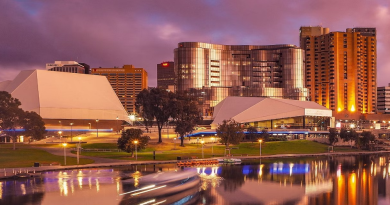Why do we keep getting the same old musical revivals?
New major musicals rarely make it mainstream for a variety of reasons. One reason is that producing a musical is a significant financial investment, and there is a risk that the musical may not be successful. Additionally, musicals often require a large cast and crew, as well as expensive sets and costumes, which can add to the cost of production. Additionally, musicals also require a large audience base to be financially successful, and building that audience can be a significant challenge. Finally, the popularity of musicals can vary depending on the cultural climate and the tastes of the general public, which can also affect the success of a new musical.
Why do we keep getting the same old musical revivals?
There are a many reasons why musical revivals are common on Broadway and in other theatre markets. One reason is that these shows have already proven to be popular and successful in the past, so producers may feel more confident that they will be able to recoup their investment. Additionally, many musicals from the past have a built-in audience who are familiar with the show and may be more likely to purchase tickets. Another reason is that musicals from the past often have iconic songs, which can attract audience. Another is that there is a lack of new musicals that can sustain the same level of success and popularity as the ones that have already been produced. Finally, there are some productions that are so iconic and beloved that they are considered as classics and their revivals are always in high demand.
How can we support the creation of new original musicals?
There are several ways to support the creation of new original musicals:
- Attend live musical productions: Going to see musicals at local theaters or on Broadway helps support the industry and can also help raise awareness of new productions.
- Invest in new productions: Investing in new productions by contributing to Kickstarter campaigns or investing in theater companies can help provide the financial support needed to bring new musicals to life.
- Support new composers and lyricists: Supporting new composers and lyricists by attending concerts, buying their music, or donating to organizations that support up-and-coming artists can help ensure that there will be new voices in the industry.
- Spread the word: Share your enthusiasm for new musicals with your friends and family, and encourage them to see a show. Use social media to post about productions you’ve seen and enjoyed.
- Encourage education in musical theater: Encourage schools and universities to offer classes in musical theater and provide opportunities for students to participate in productions.
- Collaboration: Encourage collaboration between theater companies, producers, and investors to bring new original musicals to the stage.
- Finally, be open to new and different musicals and productions, experimentation and taking risks can lead to new and exciting musicals.
Why is producing commercial musical theatre so risky?
The high cost of producing a musical, including the cost of the script, the music, the cast and crew, sets, costumes, and advertising, can make it difficult for a production to recoup its costs, let alone turn a profit. Additionally, the success of a musical depends on many factors, such as the quality of the script, the music, the performances, and the marketing, and there is no guarantee that a musical will be well-received by audiences or critics.
Furthermore, musicals can be affected by the cultural climate and the tastes of the general public, which can also affect the success of a new musical. This creates a risk that a musical that is popular in one city or one time, may not be popular in another city or time.
Additionally, if a musical is not successful, it can lead to significant financial losses for the investors and producers. This is one of the reasons why producers are cautious and tend to opt for remounts, revivals and adaptations of existing popular shows rather than new original musicals.
Overall, producing commercial musical theater can be a risky venture, but it can also be extremely rewarding if a production is successful.
How much does it cost to stage a major commercial musical?
The cost of staging a major commercial musical can vary widely depending on a number of factors, such as the size of the production, the location of the theater, and the salaries of the actors and crew. On average, the cost of producing a Broadway musical is around $15 million, but some shows can cost significantly more or less than that. Off-Broadway productions may cost less, but still in the several hundreds of thousands of dollars range.




